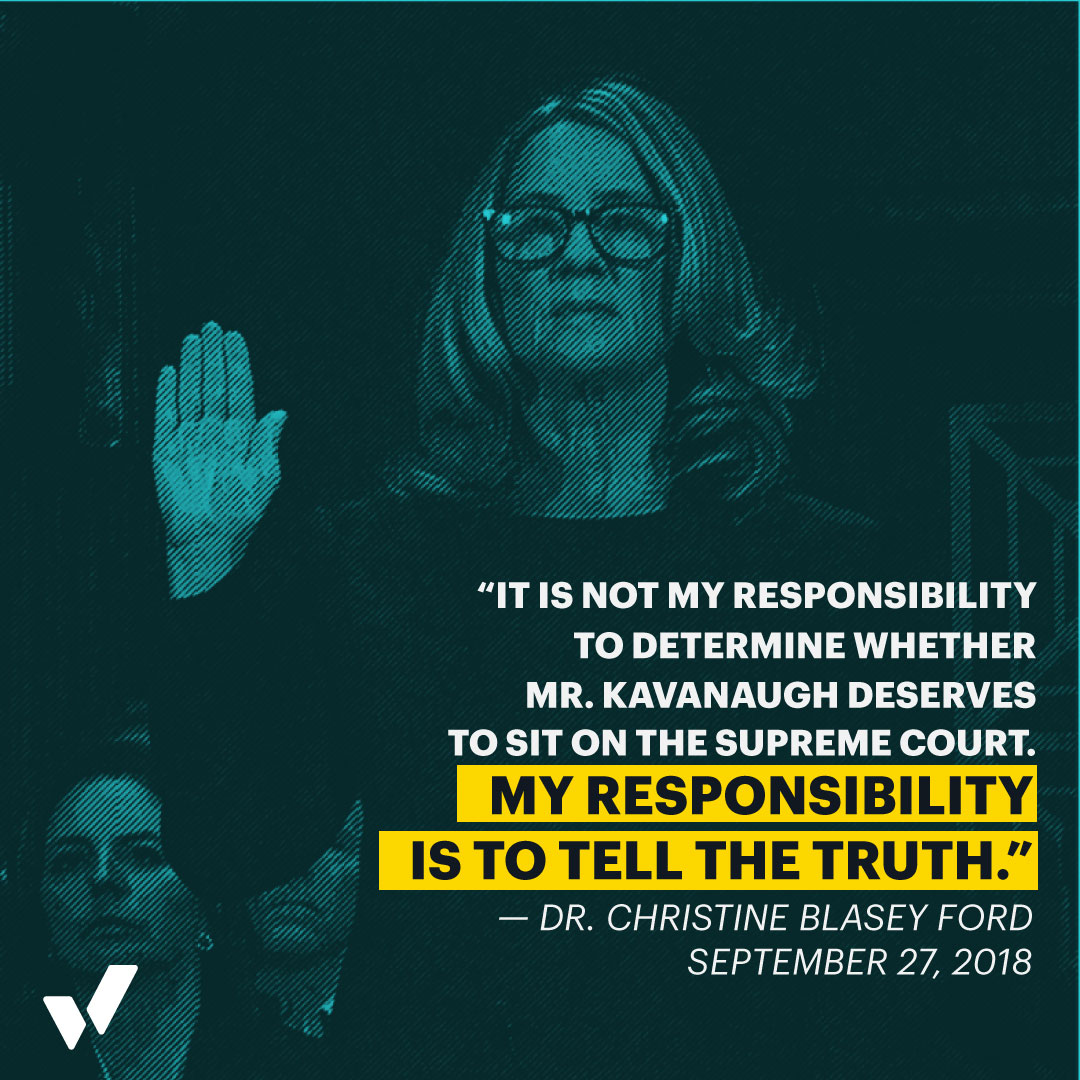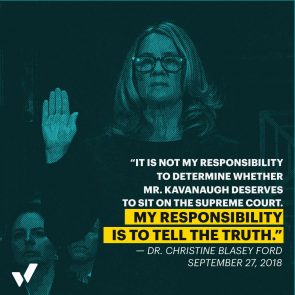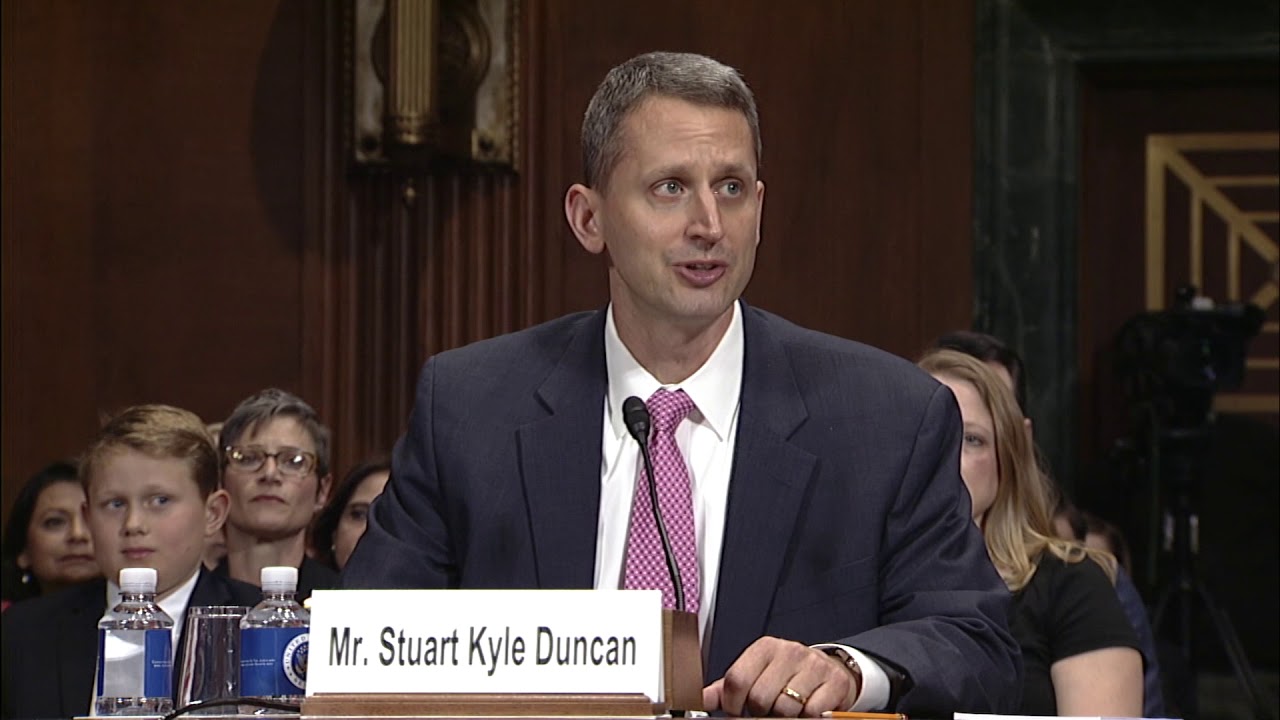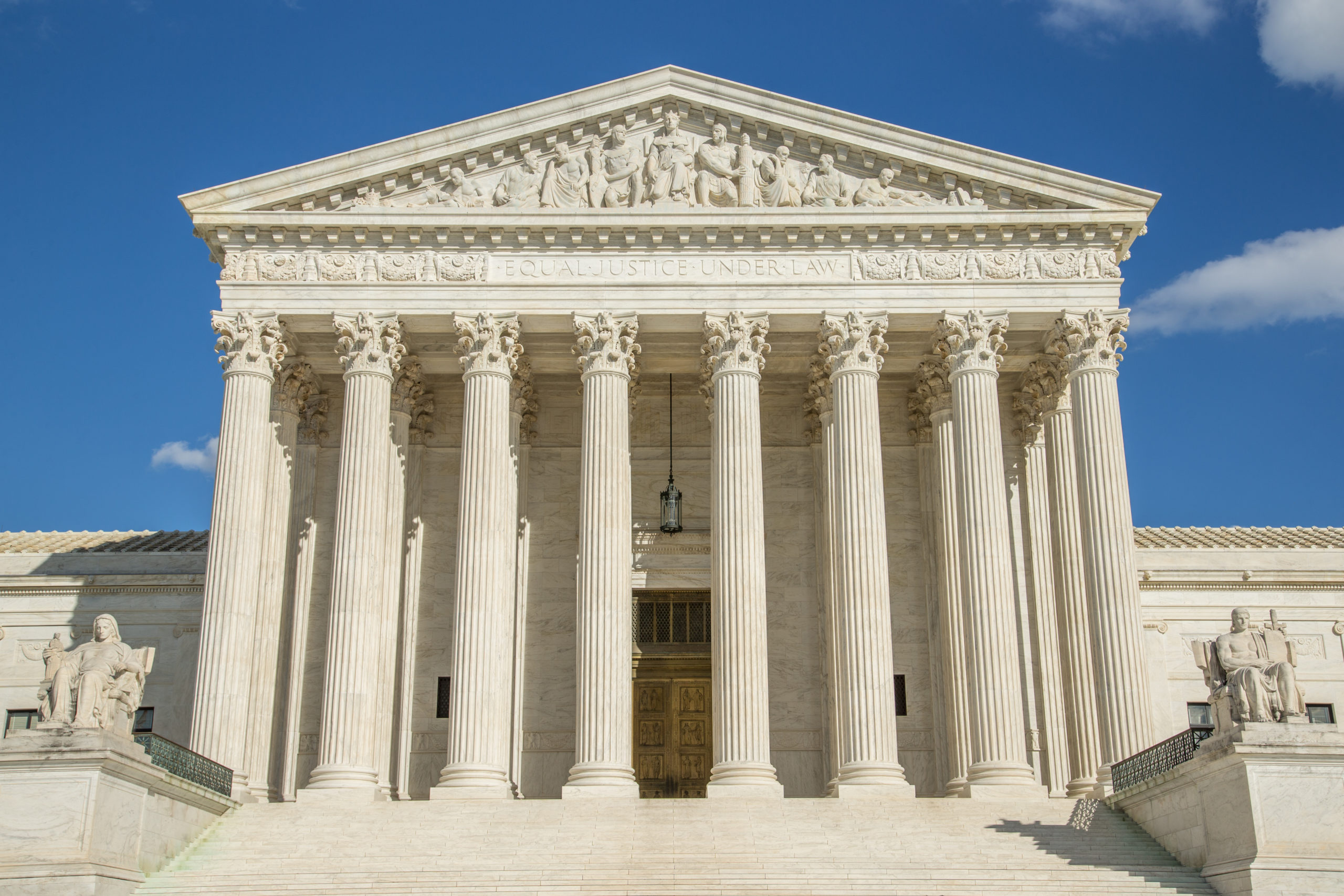One Year Later: Survivors Deserve Better

 I still remember vividly where I was and what I was doing when Senator Susan Collins announced that she would be supporting Brett Kavanaugh’s nomination to the Supreme Court of the United States. I was in Senator Chuck Grassley’s office lobbying with a group of student survivors from Iowa who were reading aloud their stories- even as onlookers in the office snickered and rolled their eyes. It crushed me to stand next to these brave survivors and witness them baring their souls and ripping open wounds to just be ignored and silenced. They persisted even though they knew that Brett Kavanaugh was going to be our next Supreme Court Justice.
I still remember vividly where I was and what I was doing when Senator Susan Collins announced that she would be supporting Brett Kavanaugh’s nomination to the Supreme Court of the United States. I was in Senator Chuck Grassley’s office lobbying with a group of student survivors from Iowa who were reading aloud their stories- even as onlookers in the office snickered and rolled their eyes. It crushed me to stand next to these brave survivors and witness them baring their souls and ripping open wounds to just be ignored and silenced. They persisted even though they knew that Brett Kavanaugh was going to be our next Supreme Court Justice.
When a New York Times essay resurfaced these sexual assault stories a few weeks ago and revealed new corroborating evidence to Deborah Ramirez’s report of sexual assault, it was a painful reminder of how I felt a year ago in Senator Grassley’s office. The essay merely confirmed what I already knew was true.
As the one-year anniversary to Brett Kavanaugh’s confirmation approaches, I can’t help but fixate on the fact that the Senate Judiciary Committee had an opportunity to do right by survivors and take sexual harassment, including sexual assault seriously. But the Senate Judiciary Committee, dominated by the all-male slate of Republican Senators, failed survivors in 2018- just as they did nearly three decades ago during the 1991 Clarence Thomas hearings.
First, the Senate Judiciary Committee never listened to the reports of sexual assault from Deborah Ramirez. Nor did they call any corroborating witnesses.
Second, Dr. Christine Blasey Ford and Professor Anita Hill both endured a process that should never be repeated. A process that had not improved despite the 28 year difference. A process that turned a Supreme Court confirmation hearing into a criminal trial of the survivor. A process that unfairly placed the onus on the survivor to convince the public that Kavanaugh was guilty of a crime, when it should have been about whether her testimony cast enough doubt about his qualifications for a seat on the highest court of the land.
Both women came forward to tell their truths. Yet neither received the respect they deserved. Dr. Blasey Ford received death threats, was forced to go into hiding, and had her experience and her testimony dismissed as partisan smears. Similarly, Professor Hill was publicly ridiculed and branded as a liar. If Senators are serious about addressing sexual violence, then they must create a better process for survivors to come forward in the context of a confirmation hearing. Or else, why would anyone ever come forward again? As Dr. Blasey Ford put it when initially determining not to come forward: “why suffer through annihilation if it’s not going to matter?”
Looking back at what Professor Hill wrote in her op-ed leading up to Dr. Blasey Ford’s hearing, she provided a number of recommendations for the Senate Judiciary Committee:
- Don’t choose between making the process about either confronting sexual harassment or having a fair confirmation process. You can and should do both.
- Select a neutral investigative body, outside the political process, with experience in sexual misconduct cases to investigate the incident and present the findings to the Committee.
- Don’t rush the process. If Senators want to take sexual harassment, including assault accusations seriously, then they must fully investigate all the allegations.
While this is not a comprehensive list, it’s an important start. Here are some other critical steps:
- Demand a fair and thorough process that is survivor-centered and separate from the highly political judicial confirmation process. This process should be informed by experts in the field who have experience investigating sexual harassment, including sexual assault, and should not re-traumatize survivors.
- Stop relying on the rape-myth fallacy that “there is no evidence.” Victim testimony is evidence.
- Conversely, stop relying on the testimony of non-victims. “He never harassed me” isn’t evidence—it’s misdirection. (After all, we manage to understand that serial killers do not murder everyone they meet.)
- Lastly, survivors should be the ones to determine whether to reveal their identity. We shouldn’t force people to relive their pain and partake in trauma porn in order to convince decision-makers to care.
Professor Hill deserved better.
Dr. Blasey Ford deserved better.
Deborah Ramirez deserved better.
Survivors deserve better.




